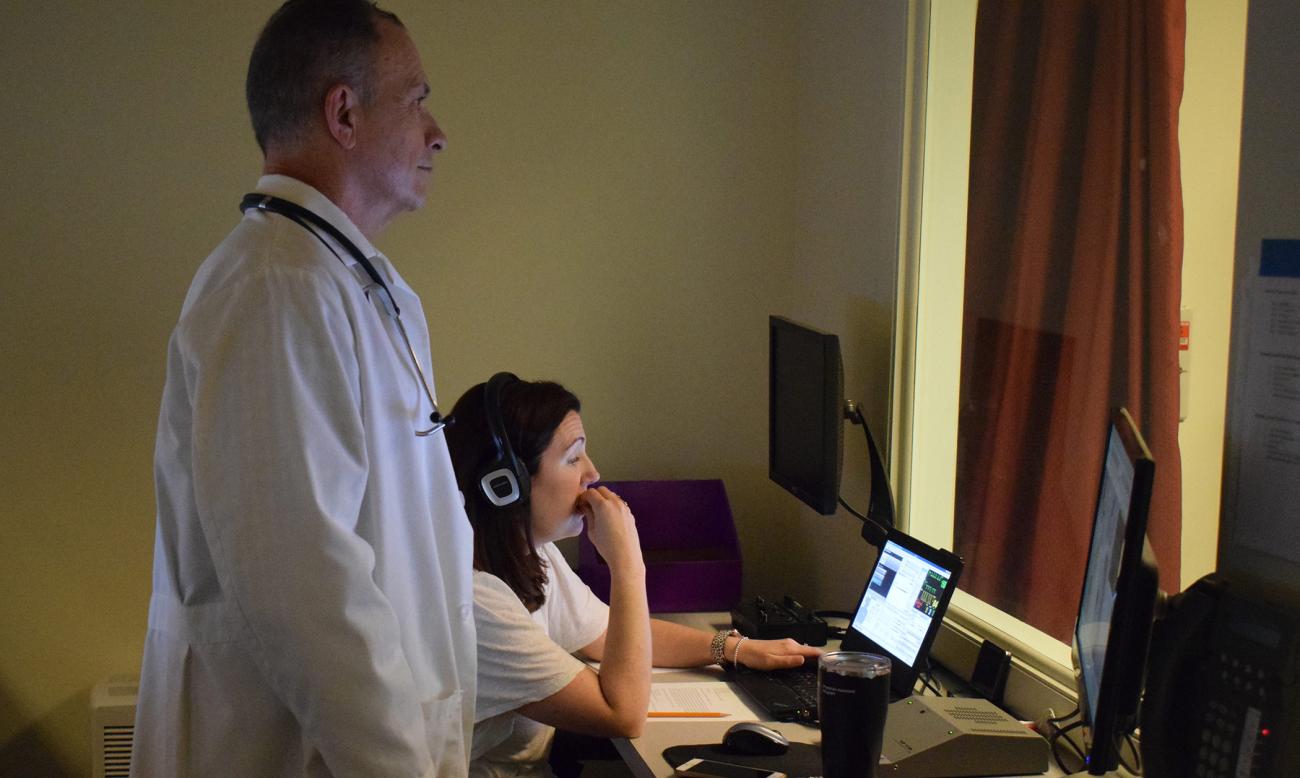Springfield College Physician Assistant Program Chair Part of Opioid Crisis Working Group

At left, Charles Milch, Springfield College Physician Assistant Program chair, joined physician assistant faculty members from colleges and universities throughout Massachusetts to be a part of a working group focused on addressing the opioid crisis in Massachusetts.
Charles Milch, Springfield College Physician Assistant Program chair, joined physician assistant faculty members from colleges and universities throughout Massachusetts to be a part of a working group focused on addressing the opioid crisis in Massachusetts. The group represented a first-in-the-nation, cross-institutional partnership toward the prevention and management of prescription drug misuse.
Led by the Massachusetts Department of Public Health, along with the Massachusetts Association of Physician Assistants, Milch, along with his colleagues, focused on research that strives to make sure physician assistant students are being trained with the knowledge and skills to prescribe opiates safely, which in turn can assist with limiting morbidity and mortality resulting from prescription and synthetic opioid abuse. The working group’s findings were published in a special article in the Journal of Physician Assistant Education.
“As health care educators, we are always making sure that we prepare our students with the skills necessary to provide the very best care for their patients,” said Milch. “This next generation of physician assistant students can have a major impact in the ongoing public health crisis. Everyday, 130 people die in the U.S. from an opiate overdose from prescription pain relievers, heroin, and synthetic opioids, such as fentanyl. This is a serious national crisis that affects public health as well as social and economic welfare. This was truly an honor to work with such great physician assistant professionals in helping provide research that we feel can provide additional statewide, interdisciplinary collaborations around an educational approach to the opioid epidemic.
Joining Milch as co-authors of the special article in Journal of Physician Assistant Education were representatives from the Boston University School of Medicine Physician Assistant Program, the School of Physician Assistant Studies, Westfield State University, Tufts University School of Medicine, Bay Path University, MGH Institute of Health Professions, and Northeastern University.
“Physician assistant students need to be prepared to prevent and treat opioid use disorder and opioid overdose,” said Massachusetts Department of Public Health Commissioner Monica Bharel. “We were pleased to work with the PA schools in Massachusetts to incorporate addiction treatment into their school curricula.”
Springfield College is an independent, nonprofit, coeducational institution founded in 1885. Approximately 4,100 students, including 2,500 full-time undergraduate students, study at its main campus in Springfield, Mass., and at its regional campuses across the country. Springfield College inspires students through the guiding principles of its Humanics philosophy – educating in spirit, mind, and body for leadership in service to others.
